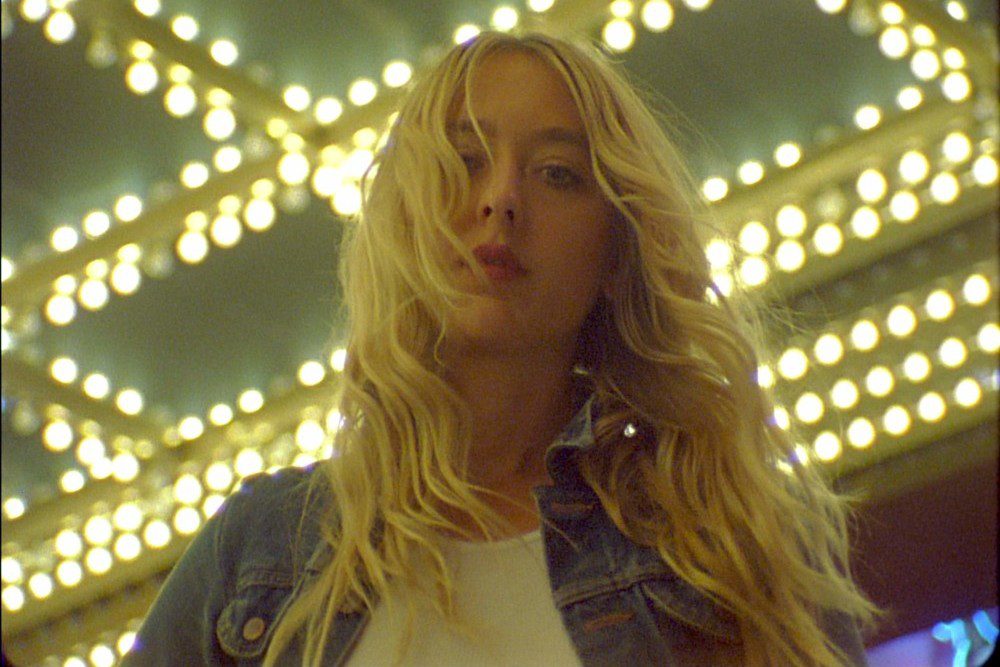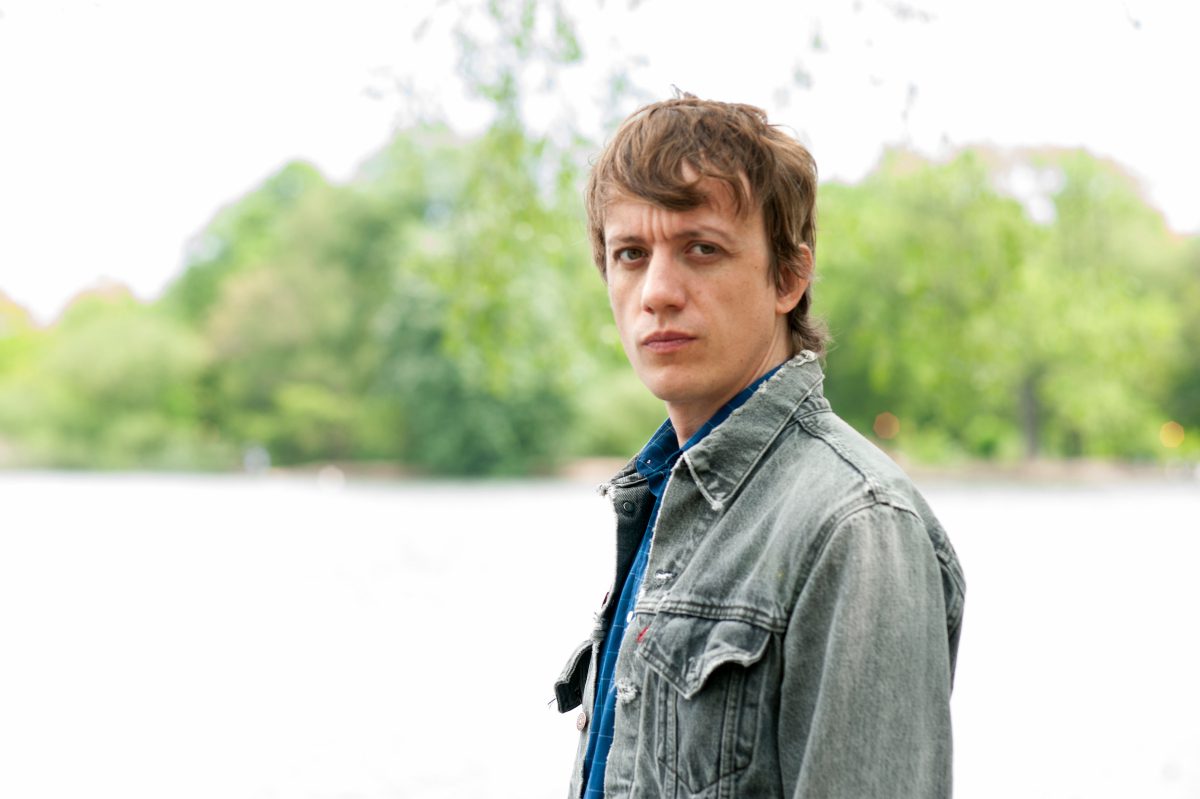PREMIERE: Lauren Rocket “Rattlesnake”


Singer, songwriter, and multi-instrumentalist Lauren Rocket is the embodiment of the word “badass,” and that’s no clearer than in her latest single, “Rattlesnake.” In the video for the fierce, beat-driven rebel anthem, we see Rocket dancing around the house, ravenously eating sweets, and posing in an “Anarchy” shirt while singing lyrics like, “I like the pain because it keeps me awake / can’t sleep, don’t put on the brakes.”
Rocket signed her first record deal at age 18, toured with artists including The Child and The Pink Spiders as part of her pop-punk band Rocket, and has most recently toured alongside Rilo Kiley’s Blake Sennett and The Honorary Title’s Jarrod Gorbel in Night Terrors of 1927. As a solo artist, her music has included catchy, danceable, elecropop hits (like “Sharks” and her cover of Echo and the Bunnymen’s “The Killing Moon“) that project a sassy, self-assured persona.
We asked her about the evolution of her music, what it was like to be in an all-female punk band, and what “Rattlesnake” means to her.
AF: What is the concept behind the song and video for “Rattlesnake”? What inspired you to come up with it?
LR: With “Rattlesnake,” I wanted to write a song about living life dangerously, doing what you want daily, and enjoying your limited time here while imposing a strong belief in trying everything at least once. When I got in the studio with my co-writers Jason Bell and Jordan Miller (aka HEAVY), they totally got the vibe and concept, and we kind of effortlessly weaved our way through the song. I wanted “Rattlesnake” to not only convey that lyrically, but I wanted it to feel alive (“rattlesnakey”) in a sense.
Visually, my co-creater Zoey Taylor and I envisioned a video that really was pure, moving picture “mood,” capturing the essence of momentary youthful freedom and a strong amount of weirdness. We are both giant fans of Harmony Korine and love how his movie, Gummo, is a series of unforgettable vignettes that all work together to create a solid, visceral movie that you can feel in your bones and heart. He was our main inspiration, and our goal was to make it feel like the viewer is experiencing another life in little glimpses — maybe escaping into that world for a couple minutes, maybe questioning it, but maybe not.
AF: What does the rattlesnake symbolize to you?
LR: Snakes in general represent the obvious: temptation, danger, seduction, toxicity, etc. They can kill in one moment, which makes them super powerful beings. Rattlesnakes, to me, are symbolic visual representations of what I imply in the song with the line, “I wanna live like I’m dying today.”
AF: I know you’ve collaborated and toured with a number of accomplished artists and songwriters. Have they influenced your music? Who would you say your biggest influences are?
LR: I have learned so much from so many people on this journey, and I am grateful for every writing and touring experience I’ve ever had, as they’ve just made me a better version of myself as well as a better writer. I strongly believe that it’s pretty hard to grow without collaboration, because there is so much to learn from others. It’s kind of essential to creation. I have a ton of influences, so it’s hard to only name a few and not bore everyone, so I would say Dolly Parton for her grace, innate talent, and authenticity; Freddy Mercury, no question; and Deborah Harry because there’s just no one cooler. And how could I not mention David Bowie?
AF: Would you say there’s an overall theme to your music? I know you once said you write about everything butlove — why is that?
LR: I guess I could write love songs all day long. It’s a go-to for me, and I could cry and write them for hours, so the challenge for me is to write about other subjects, like aliens and snakes and wizards. I only laugh and never really cry unless I’m laughing too much, so it’s a win-win situation.
AF: Pop-punk seems to be very male-dominated — what was it like having a female band in this genre? Were there particular challenges or stereotypes you faced?
LR: Just being marginalized as a “girl band” was limiting in itself. There’s a different psychology behind how people view all female bands, and it’s a whole thing. There was this weird underlying feeling of having to prove ourselves as a musicians and performers. It was yucky, but there was another side that was beautiful and amazing. We just did our thing and had so much fun playing shows all over the country. I feel so lucky to have had those experiences in life. We simply loved playing music and touring around in a beat-up van, eating chips. I love playing with women. There’s something magical that happens when we work together.
AF: In what ways would you say your music has changed since Rocket?
LR: I’ve grown a lot, experienced a lot, and learned a lot since Rocket. That band had a bevy of puppeteers expressing their opinions on what we should sound like and act like. We were super young and green. I’ve learned a lot about myself and dug real deep in these past few years while practicing a lot of internal and spiritual work, which my soul really craved. In turn, this project is definitely the most authentic representation of who I am creatively at this moment in my life and expresses my inner thoughts, sometimes obviously and sometimes abstractly. These are the songs that I hear in my head when I’m just walking around, living my life every day. I know exactly how I want them to sound. It’s been a really inspiring and exciting journey so far, and I’m excited for it to keep unfolding.
Follow Lauren Rocket on Facebook for ongoing updates.




